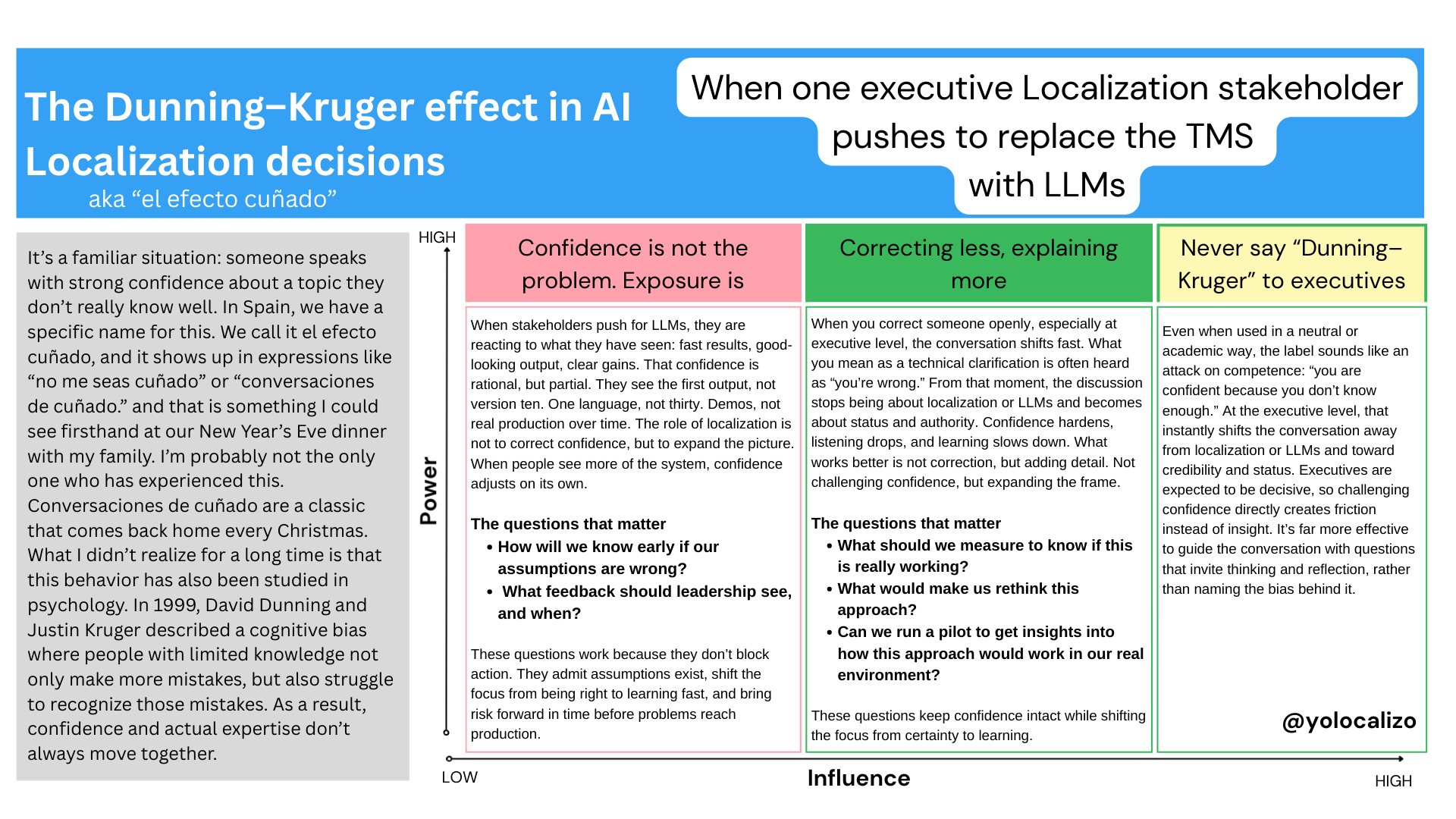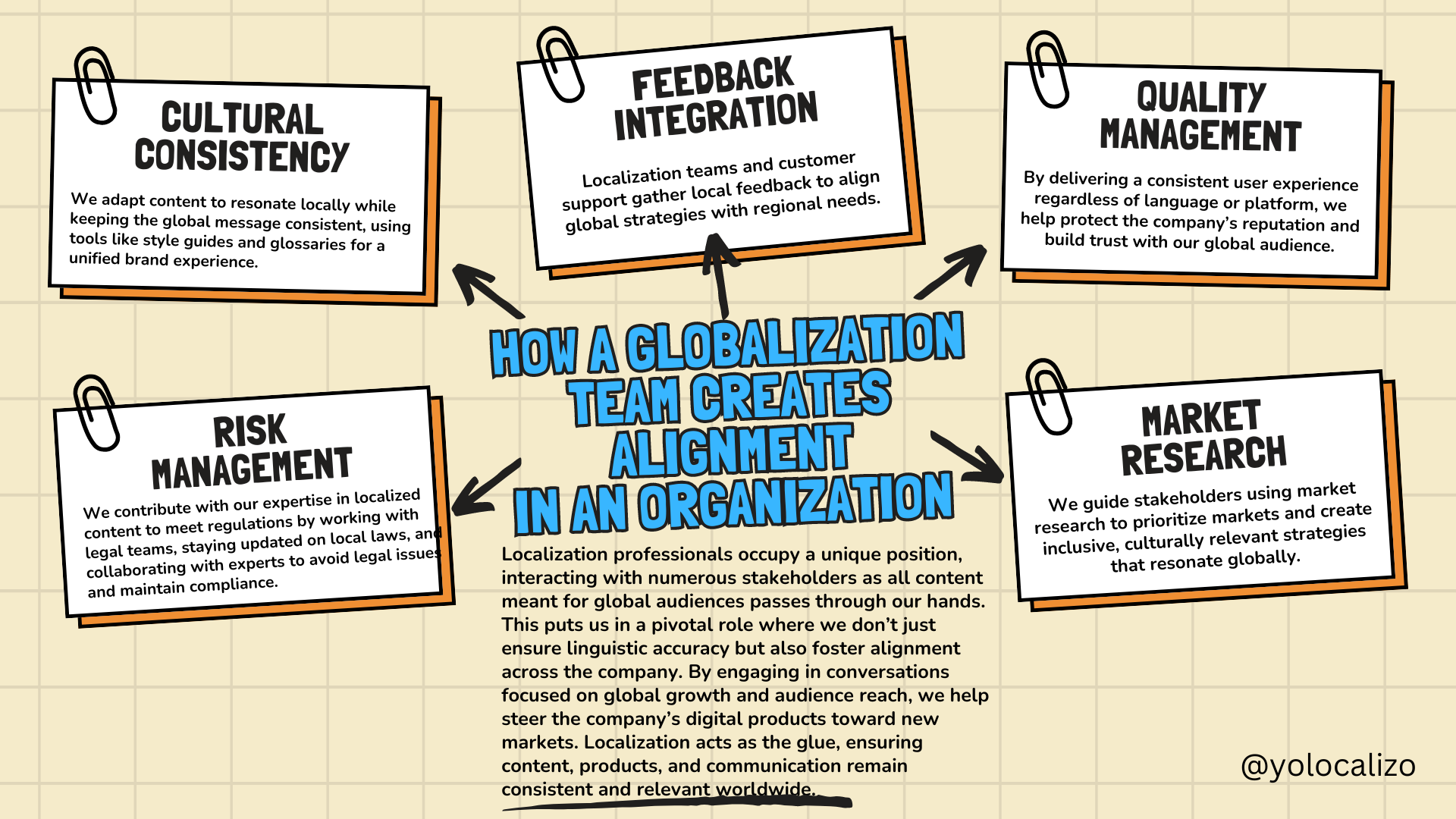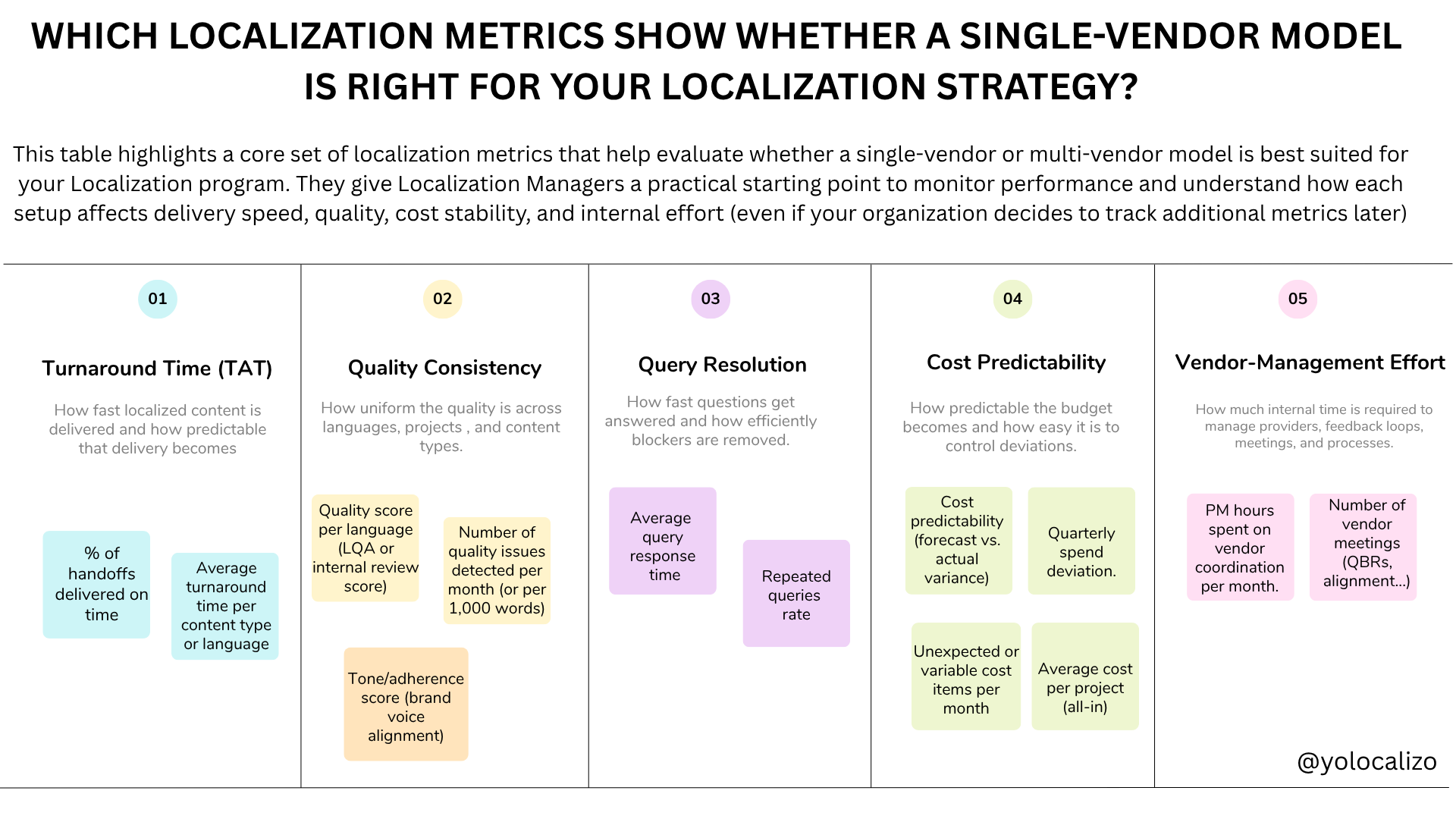It's never way too early to start talking about Globalization activities
It happens repeatedly; it occurred to me when I was starting in the Localization industry and still happens today.
Not as often as before, fortunately, but it still happens. And what keeps happening?
Well, what still happens is that when we talk about the fact that Globalization/Localization activities should be executed in parallel to the Product ideation phase, someone from the development team says,
"It's way too early to start talking about that"
Ouch! Those phrases and those comments are my kryptonite.
It's not way too early to start talking in the ideation, and design phases about what markets a product will be in;
it's not too early to prepare the code so we can easily add more languages later, and it's not too early to start looking at local payment gateways or scenarios to monetize the product by partnering with local Ads providers.
If we want to succeed globally, our product must engage customers worldwide in their culture and adapt to their preferences.
That's harder than it may seem at first glance.
To outsiders in our industry, it may seem like it's just translation, and in fact, it can be done by pressing the "Translate" button in Google Translate, and you're done.
Here are some ideas of what we can say/do if we find ourselves in a situation where "It's way too early to start talking about that."
- It's never too early to plan
We have heard it many times, fail to plan, plan to fail, so it does not seem bad that while designing the product development roadmap, mapping the Localization tasks can be done in parallel.
For example
- If we are designing an app, and the development team is defining aspects such as:
What is the app about?
What needs does it cover?
Who is the target audience?
This is a perfect moment to do market research from a Localization perspective on:
which market to prioritize,
how to enter it
what is the language coverage we could have.
- When the development team is talking about what development technology and framework to use, it is an excellent time to bring the CMS topic to the table and start discussing how to organize the content to operate in a continuous development/continuous localization mode.
- When in the ideation phase, the product owners are talking about metrics to measure the success of the software to be developed, it is an excellent moment to also analyze which metrics at the global growth level can be monitored from a localization perspective (e.g., the product team wants to grow in Turkey, and therefore we start localizing some content in the web page, an excellent metric to monitor to assess the impact of Localization activities might be the number of leads generated from the Turkish landing page).
- When designers are doing their mock-ups and wireframes, it is the perfect time for a localizer to sit down with them and together explore how those prototypes look in languages with longer words, languages that use different fonts, different metrics, etc. There is no need to wait until the UI in English is finished to see how it will look in the localized languages. Nowadays, pseudo localization in the design phase is a real option to minimize the time needed in the traditional LQA phases.
- Persona and user research is usually done in these phases, but why limit this research to build for most current users when it can be extrapolated to most of your potential users? In most projects I have worked on, research is being done in one language, such as English; basing product development on the assumption that all users will use the product in the same way is risky and can significantly limit product expansion.
- When the product development team is defining the roadmap, it is an excellent time to sit down together and explain that Localization tasks should also be included in the roadmap, especially the Linguistic Testing phase. LQA activities take time, and many of these activities are done towards the end. In this phase, the pressure to perform the release increases, and the time available to perform linguistic validation decreases. The Localization team must be assured of a slot in the roadmap defined early in the product development phase.
- When the development team is discussing how they are going to make money with the app when they are analyzing the different monetization models available, it is an excellent time for the Globalization team to give their input on other payment models across the world; or even give guidance on which markets may be more receptive to consume ads and which ones see ads as an intrusion and something to avoid. The Localization and monetization teams should work hand in hand to offer clients a complete solution. For example, Astropay is very popular as a payment method in South America, so if we plan to market our product in that region, offering that as a payment option (and testing it) will be tremendously valuable.
- When the product team starts to write content when they begin to define all the text that we will see in the app or on a web page, that is the perfect moment to put on the table concepts like linguistic inclusivity, diversity, and how we will carry out inclusive localization tasks for the different markets in which we are going to operate.
- When the product team is designing images, icons, selecting the photos to be used, it is an excellent time to look for icons, colors, and photos that represent the diversity of the world we live in and that make sense to the local users who will buy our product.
Click HERE to download the infographic
In summary
Localization is more than just mere translation. It is necessary to plan each step ahead of time and schedule accordingly.
It's never too way too early to start talking about what we need to do to Globalize a product because the sooner we have these conversations with the product team, the more successful we will be at
overcoming language barriers and reaching customers by helping them understand the value of what they get. And no, never, it's too early to start talking about Globalization activities :)













For a long time, localization was treated as a pure execution task: translate fast, deliver on time, and stay invisible. That model worked when content volumes were lower and speed was the main challenge. As AI becomes part of everyday workflows, this approach is no longer enough. Translation itself is not the hardest part anymore. The real challenge is deciding what content deserves attention and how AI fits into the broader content ecosystem. This shift highlights a deeper change: moving from simply translating content to actively managing it.